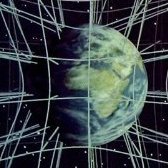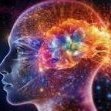Leaderboard
Popular Content
Showing content with the highest reputation on 01/20/25 in all areas
-
Andrew Coyne a columnist for leading Canadian newspaper The Globe and Mail had this to say on the eve of Donald Trump’s second presidential inauguration - (quoted in full because of a paywall): https://www.theglobeandmail.com/.../article-trumps.../1 point
-
A list of my fav time travel shows and the premise of the shows time traveling. Outlander - Straight up magic, no technology, and the protagonists alternate between trying to change history and trying to lie low. Timeless- Straight up technology with the intent to change or repair the past time line. Travelers- Technology with the intent of changing the past through major acts of intervention Terra Nova- Technology with the intent of escaping the present by moving to the extreme past. Primeval- Natural occurrences used to time travel and trying to prevent changes to the past and present. Feel free to list your own favs in the poll and I'd like to discuss the differences in the premises of he shows and how well they do in consistency even if the premise is fatally flawed. I'll start out with my fav time travel show which is Travelers, the show is reasonably internally consistent, the main premise is that no material objects can be sent through time only information. Nothing can be sent through time without a T.E.L.L. Time Elevation Longitude and Latitude of the person it is sent to. The main reason I liked the show was... I hate to ruin the show for anyone but while the time travel is portrayed as almost omnipotent technology ultimately they fail to make a difference in the future. The idea they fail is what ultimately makes the show so powerful. Anyone else want to step up and explain their fav time travel show feel free to do so!1 point
-
I remember it. One of the Irwin Allen sci-fi shows - the other two were much more successful - Voyage to the Bottom of the Sea (my favorite), and Lost in Space (which seems to have indelibly printed itself on the synapses of every American brain of our generation). We watched it a few times but didn't much get into it. IIRC, it premiered the same time as Star Trek, which may explain its poor ratings and cancellation after one season. Our parents were fairly anti-TV, so there may have also been some rationing on cheesy sci-fi. And TT was definitely cheese.1 point
-
Exactly +1 And in reverse, there are also issues being portrayed as moral choices that in reality have little to nothing to do with morality, eg drug addiction. Also, the title of this thread has it exactly backwards - it is awareness of these issues that ensures society can continue to improve and thus remain stable, rather than such awareness being a destructive influence. Historically, many of the great empires (eg the Romans, the Ottomans, the USSR,…) failed and collapsed precisely because they didn’t address their issues of inequality and moral inconsistency. History provides us with all the necessary data points.1 point
-
The only time travel show I can remember watching was Time Tunnel. And that was so long ago I can't even remember if I liked it.1 point
-
Many TV shows have used the premise of time travel, while not being exclusively about time travel. Star Trek comes to mind, with two outstanding examples being STtOS, the 28 episode of the first season, "City on the edge of forever", and STtNG, "All good Things Pt1 and 2'. Then again, I'm Star Trek biased.1 point
-
Plus 1 for this. I added a vote for Travelers to the poll. Loved the nuances of this show and the psychological and ethical conundrums as the team inhabits these other bodies. It only took me a year to notice this thread.1 point
-
There was a reboot of Quantum Leap that was excellent. It picked up where the original left off. Only 2 seasons.1 point
-
This reminds me of tides in the ocean. The moon is an enormous input, but the H2O molecules still are far more subject to local forces like electromagnetism. I suppose in this example the other brain regions are the moon and the thalamus is the ocean Yes, in much the same way that our cortex is shielded by our skull and our hearts by our rib cage. The most important bits tend to be best protected as they’re foundational to proper functioning of all the surrounding regions… a bit like a hub is to the spokes on a wheel Thanks for sharing your explorations with us. Your interest is infectious1 point
-
For too long, many of these issues have been pushed on us as political, where a vote can decide, but whether you respect someone as a human enough to use non-hurtful terms is a moral issue. Persecuting fellow humans for the color of their skin or who they love or how much money they have isn't a right vs left, liberal vs conservative decision, it's a right vs wrong matter.1 point
-
1 point
-
Of course there are. You have size of the context window and how many tokens are allowed. You have how many billions of parameters the model was trained on. You have metrics on different efficacies of training type like RAG or RLHF. There’s lag between query and response and how many hundreds of milliseconds it takes to receive audio responses to voice prompts, or how many modes can used to engage it. On top of that, most releases have a model card which lays out how the system was setup and what to expect in the results. There’s human rankings based on how capable the model is, and ranks that are calculated based on tests designed for PhDs or mathematicians. You can determine how good it is as writing and repairing its own code. https://huggingface.co/learn/nlp-course/chapter4/4 Details matter here, but assume fancy Google for now with most goods available today to consumers1 point
-
I personally have always loved Doctor Who. It’s also the first thing that got me really excited and interested about science and the universe and what must be, what might be and the like. Sadly I’m not really sure I understand as much about science as I’d like as science and maths have always seemed a struggle to me. But my longing to make sense of the world and to understand what I can all really start with that tv show as a kid.1 point
-
First of all, I want to note that my post was removed twice due to forum regulations, and I respected that decision and followed the rules. However, on the third occasion, you removed it again, based solely on your subjective opinion. This is not a courteous or respectful approach. You should allow post to remain as it is and let people share their feedback, especially since I clearly stated that it was a hypothesis (not a fact). As for your stupid comments: Fe here refers to a constant (coefficient), not Fe-57. I don’t understand how you connected it to Fe-57! Do you have any experimental evidence to contradict this? No, this is a theoretical attempt to address some unresolved issues in physics. I do not have experimental data at this moment. However, do you have any phenomenon or experiment that disproves this hypothesis? Is there a theoretical foundation for this? Yes, if you read the article carefully, you will find numerous equations and theoretical proofs supporting the hypothesis. This is the essence of the article. Lastly, if you have the scientific integrity to do so, you should publish the post again and allow others to offer their honest feedback.-1 points
-
I know very well that people die every day. Some people die because of other people. Not because of God's Will, but because of other people's will. But everything happens according to His Plan. I don't know whether I will wake up tomorrow, because for me everything is in His power. And why are you not sure of one's longevity?-1 points
-
.1 to 4 - yes 5- Molecules that make up proteins in the body remain lifeless on their own, even though they are integral to a living organism. It is the body as a whole that is alive, not the individual molecules. However, the key point is that the transformation of matter into living organisms has neither been observed in nature nor replicated in the lab. Nonetheless, we continue striving to understand nature, a significant portion of reality, even if our understanding can only approach it asymptotically. +1 for the post. However, I am not implying that God transformed non-living matter into living organisms. What I am stating is that, as of now, we have not observed non-living matter turning into a living organism, either in nature or in the lab. This is a factual observation, not a matter of belief. Speaking of physics, Heisenberg emphasized how science (quantum mechanics) shapes our understanding of reality. Or more broadly, Kuhn exploring how science expands our understanding of reality by examining shifts in scientific paradigms. Numerous renowned scientists believe that science plays a crucial role in shaping our understanding of reality.-1 points
-
If there is no evidence of a qualitative "gap" in our understanding, then why have some turned to quantum biology as a potential venue for the origin of life? Concepts like quantum superposition and entanglement have been proposed as possible influences on life. Again, speculative I concur. And quantum biology has nothing to do with creationist claptrap.-1 points











